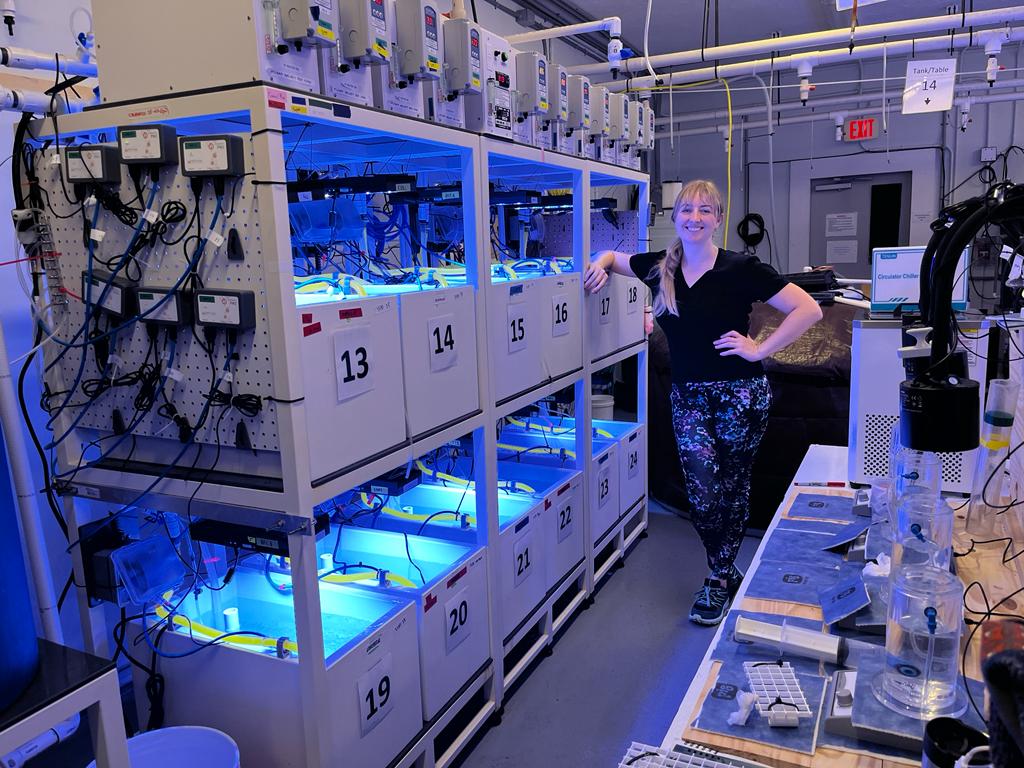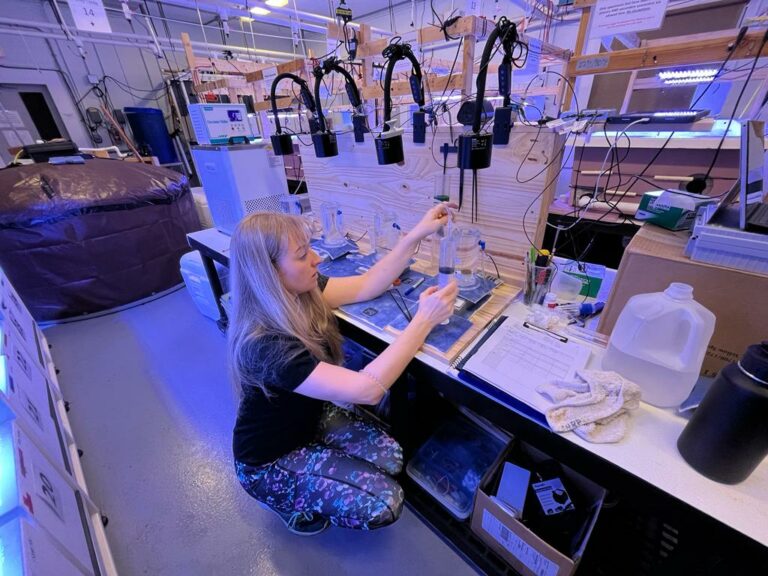
At the Smithsonian in Fort Pierce, Florida, research into deoxygenation impact on corals is being conducted in a custom-built mesocosm facility designed to allow researchers to manipulate seawater chemistry to mimic the current and future conditions on coral reefs.
The system has 24 individual closed system tanks, each one with independent control of temperature, pH, DO and light to facilitate replication and multi-stressor experiments.



